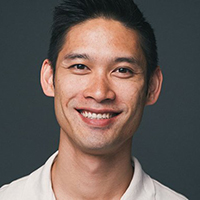 For more than 15 years, an innovative program at Tyndale University in Toronto has equipped ministry leaders with skills, resources and connections to do outreach differently. With meetings once a week in a cohort of like-minded pastors, leaders and peers, this four-year program ensures that participants can continue “practising what they preach” as they are fed spiritually, through discussions and lectures. Director Jesse Sudirgo spoke with Tyndale staff writer Melissa Wallace about the program and shared why he hopes it will become the “theological fanny pack” of our day.
For more than 15 years, an innovative program at Tyndale University in Toronto has equipped ministry leaders with skills, resources and connections to do outreach differently. With meetings once a week in a cohort of like-minded pastors, leaders and peers, this four-year program ensures that participants can continue “practising what they preach” as they are fed spiritually, through discussions and lectures. Director Jesse Sudirgo spoke with Tyndale staff writer Melissa Wallace about the program and shared why he hopes it will become the “theological fanny pack” of our day.
Q: Tell me about the Church in the City program.
I’d describe it as an MBA for someone who's in ministry. It’s a community of practice, where you engage with others who are themselves trying to be faithful and innovative in ministry. They get the benefits of not only connecting with peers, intellectually, but also of being formed as a spiritual community together. You're with the same students every class for three and half years, so you begin to know how to be with people from different denominations and beliefs, and you begin to rub shoulders, just as iron sharpens iron.
All of our courses have an element of being able to apply the course material into our ministry context right away. We structure our courses like a 10-course meal, rather than an à la carte buffet. We set everything in place because we know people in ministry are busy doing a lot of things, and we want to streamline it. We structure the courses such that one segues to the next and they all build on each other. So, year 1 has a biblical focus. Year 2 helps us understand the context of ministry and our fit. Year 3, starts to integrate different disciplines with each other. And year 4 starts to articulate and develop a local theology.
Q: How does “studying” ministry benefit leaders who are already “doing” ministry?
For many people doing ministry, intuition and common sense come into play. Out of your own devotional time or personal study, you speak and share personal experiences.
What education does is it helps you articulate and challenge your assumptions through dialogue with past and present Christian scholars, ministers and practitioners. This season of exchange will allow you to develop your intuitions and natural gifting, rooting them on a solid foundation.
Ironically, I used to be very “anti-academia,” but as I engaged more, I experienced the antithesis of what I initially thought. As I explored and certain thoughts matured, I felt more grounded. As long as we're always having a hand in ministry, touching the ground and being amidst the tangible reality of those we are serving, I think it’s good to keep on studying and engaging.
Q: The program has been around for a long time. Was it always called “Church in the City”?
No, it was called “In-Ministry” at one point, and even the current name is a bit misleading and limiting. We have people who come here from Waterloo, Kitchener and Ottawa and those who live in rural areas as well as the main Greater Toronto Area. It’s not as much about the city as it is about a contextual ministry to where you are. We’re currently thinking through different names, but we will always keep the same foundation of what we’re about.
I describe our program as a think tank-ish, innovative way of doing things. It’s kind of a retro program, where we're taking things of the past and fitting them into our current day. It's looking back and seeing what was and realizing that there's really nothing new under the sun and reinventing things from our church history into our current context and making it work, sort of like how fanny packs are in again. It’s the fanny pack for our day theologically and seeing how it can apply to our current context.
Q: So, in August 2021, the program will welcome its 16th cohort. Can you tell me about some of the graduates of the program and what they’ve been able to accomplish?
I became the Director of the program in July 2019, so I don't know all the people who have graduated, but the ones who I've heard of have started church plants, prison ministries and projects to help vulnerable populations … People have come out of this program understanding how to do community capacity building better in a theological framework. Some people have done a double major, working alongside a concentration with counselling and spiritual formation. There’s been an array of paths, but for the most part, people come out of the program thinking differently about church and challenging the status quo of what exists in church.
It's said that this program often makes something die every year, to make room for something new. Students take everything they originally believed and then re-digest it in a way that makes sense theologically, perhaps in a different way.
Q: Finally, what do you hope for people who take this program?
My hope is that they can unearth their theological, ecclesiological and missiological assumptions and understand them differently through the aid of peers, instructors and literature. I have a student who, as a result of the program, realized, “Whoa, I really am Pentecostal, and I'm leaning more into that tradition,” even though they found things that were at fault within it. The student said, “But now, I'm going to own those faults with my denomination, know it well, and help bring change in those areas.” And that's what I hope people will get from the program – that they will innovate the future as a result and bring change to our culture right now and during this time in society.
